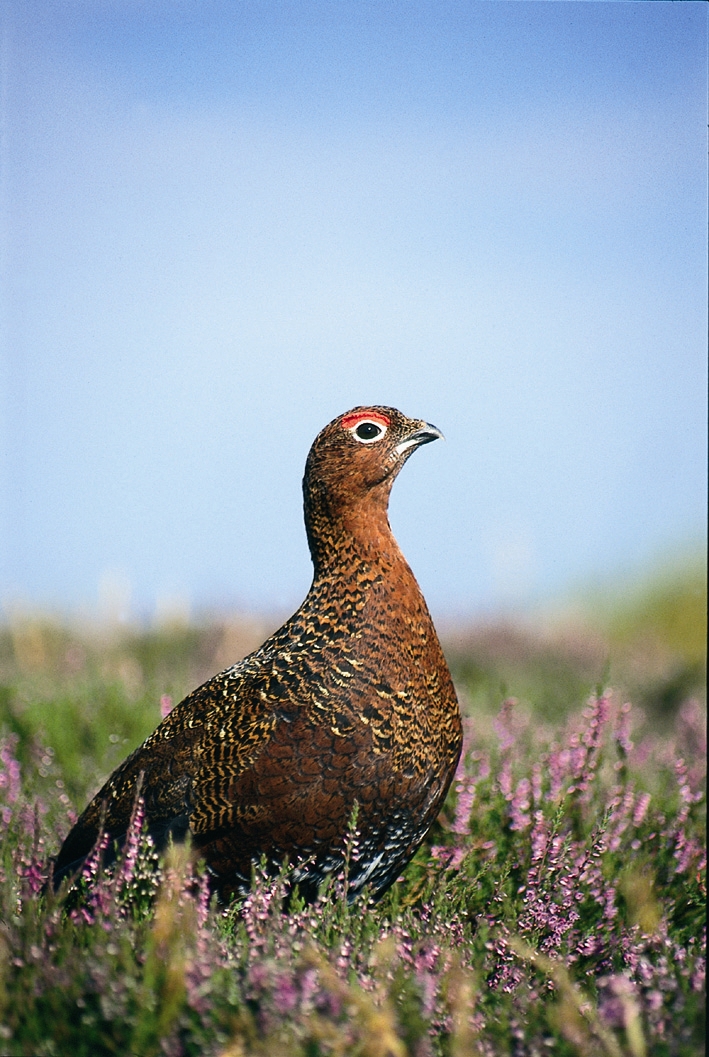On July 16, The Scottish Mail on Sunday examined the review announced by the Scottish Government that is to look at grouse moor management. That review will also look at proposals for a licensing scheme for grouse estates.
As part of their coverage, the paper carried an excellent opinion column from the Speyside Moorland Group. That column is reproduced in full below.
By Carrieanne Conaghan – Co-ordinator, Speyside Moorland Group
We’re now less than four weeks from the Glorious Twelfth, the start of the iconic grouse shooting season in Scotland.
Visitors from across the UK, Europe and even further afield will visit some of Scotland’s most remote areas to enjoy a world-class country pursuit situated on some of the country’s most beautiful heather-clad hills.
Yet whilst gamekeepers’ focus should be on the final preparations for the season ahead, this Glorious Twelfth arrives with fresh worries about the future of the sector – and the jobs of those who rely on grouse shooting for their livelihoods.
At the end of May, Environment Secretary Roseanna Cunningham announced that she was to set up an independently-led group to examine sustainable grouse moor management. This group would also advise on the option of a licensing scheme for grouse shooting businesses.
In some ways, those involved in country sports welcome the opportunity for an independent examination of the issues. I will not be alone in welcoming the fact that part of this review will be a recognition of the work that gamekeepers do and what contribution shooting makes to rural Scotland. For too long, the sector has been bound by an ongoing social media frenzy, emanating from activists who object to the very existence of grouse moors, whether their opposition is based on a dislike of shooting or of the ‘toffs’ who they believe are the only ones to participate.
Yet, for someone such as myself who lives in Speyside, and whose family’s livelihood is dependent on moorland management, it is a worry where this review will lead to – especially when the government is under pressure from pressure groups and online activists.
The review follows concerns over crimes against birds of prey – but arrives at a time when such incidents have been in decline, according to official government statistics, and tough legislation such as vicarious liability has had a positive effect. Everyone in their right minds has truck with raptor persecution. It is totally unacceptable and regrettably a few people still engage in this kind of activity. However, there should be some recognition of the real extent of the problem and the fact that great strides have been made in recent years. Whilst PAW Scotland has brought gamekeepers, landowners, conservationists together with police and government to tackle wildlife crime, distrust has been more and more evident between the different interest groups – certainly at a national level. Where a bird of prey may have gone missing, often the first place a gamekeeper or landowner learns about it is from a press release circulated to media that names an estate under suspicion rather than asking that estate if they can offer any help for the on the ground search.
My husband is a gamekeeper and I know from him, and his colleagues across Scotland, that it is their desire to manage moorland for the interests of all species, whether it be grouse, ground-nesting birds, mountain hares or birds of prey. More and more estates are getting involved in conservation projects because estates and their keepers want to see a rich tapestry of wildlife – and are willing to work long hours in harsh conditions throughout the year to ensure that happens.
But for many keepers and their families, it feels as if this is yet another assault on a rural pursuit that is a lifeline for many communities. There needs to be a recognition from all interests that grouse shooting is an important land use in remote parts of Scotland – and is vital for rural investment, jobs, tourism and crucially, wildlife and habitat conservation. There is an assumption that the income generated by grouse shooting all goes into the pocket of a laird but ask hoteliers, shops and garages who rely on much of their income from local estates and they’ll soon tell you differently – the real story.
A licensing scheme for grouse estates is one that has been pursued by anti-shooting activists for many years and will now be considered by the government group. Such activists say if estates are doing no wrong then why should they have anything to fear from a licensing regime.
However, for the vast majority of estates who have done nothing wrong and are resolute in their fight against wildlife crime, they would be penalised by strict new controls that may affect their ability to operate.
More worryingly, it also brings the potential of gamekeepers losing their homes and livelihoods if a licence to operate was withdrawn. Unlike bars and restaurants, a moor cannot close its doors when it is time for everyone to go home. There has long been worries that estates are vulnerable to a malicious incident taking place on their land for which they are not at fault. With a licensing scheme, a civil burden of proof would operate – and a dead bird of prey on a holding could lead to the suspension or withdrawal of a licence and with it, the redundancy of gamekeepers and other estate staff.
I coordinate a regional moorland group, a collection of estates dotted around the Speyside region. With colleagues from regional groups across Scotland, we wrote to the Cabinet Secretary to express our anxiety and worry about what the review and potential licensing scheme would mean for our jobs and for our rural communities. More than 400 keepers and their kith and kin put their name to it, all of whom condemn wildlife crime but are rightly fearful for their families’ jobs. We spelled out our concerns in raw terms. Yes, we’re worried and all we want is a fair shake. A similar number of signatures was also gathered on a petition at the Scottish Game Fair from those who understand what grouse moor management delivers – rather than seeking to attack it constantly – and this will continue to be signed at forthcoming industry events.
The shooting community wants to play its part in continuing to address wildlife crime. Together, the sector is examining fresh ways that it can help to stamp out the last remaining instances of crime against birds of prey and there is clear backing for tougher penalties against those found guilty of such reckless acts.
However, licensing should not be a fait accompli just because it is long-held desire of particular environmental NGOs and the government feels politically pressurised to comply. We need a review that is truly independent and evidence-based – and is not prejudicial against game shooting interests.
The next month will see the countdown to the start of the season, but as has happened in other years, it will almost certainly see the coordinated ramping up of attacks against grouse shooting interests by particular pressure groups. When that criticism arrives, I would urge government not to use it as another step on the path towards licensing but to instead offer their recognition for estates and gamekeepers who will be playing their part in supporting the vibrant economy we all want to see in our most remote rural communities. Our families’ livelihoods depend on it.

